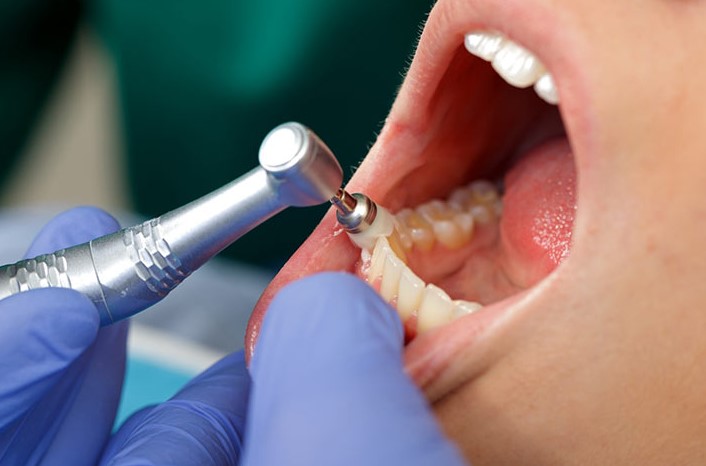
Tartar, also known as dental calculus, is a hard, crusty deposit that forms on the teeth and can contribute to their decay. It is a result of the mineralization of dental plaque, which is a sticky film that covers the teeth. If not removed, tartar can lead to serious dental problems such as gum disease and cavities. This article provides dental hygiene tips for plaque and tartar removal, offering practical advice on maintaining oral health and preventing dental complications.
Effective Ways to Remove Tartar from Teeth: Dental Hygiene Tips for Plaque Removal
Tartar, also known as dental calculus, is a hard, crusty deposit that forms on the teeth and can contribute to their decay. It is a more advanced form of plaque, a sticky film that coats the teeth and contains bacteria. If plaque is not removed promptly, it hardens into tartar, which is more difficult to remove and can cause a variety of dental problems, including cavities, gum disease, and bad breath. Therefore, it is crucial to maintain good oral hygiene to prevent the formation of tartar and to remove any that has already formed.
Brushing your teeth twice a day is the first line of defense against tartar. It is recommended to use a toothpaste that contains fluoride, which helps to strengthen the enamel and prevent decay. Additionally, using a toothbrush with soft bristles can help to remove plaque without damaging the gums. It is also important to replace your toothbrush every three to four months, or sooner if the bristles become frayed, as a worn-out toothbrush is less effective at removing plaque.
Flossing daily is another essential step in preventing tartar buildup. Flossing removes plaque from between the teeth and along the gum line, areas that are difficult to reach with a toothbrush. If you find traditional floss difficult to use, you might consider using a water flosser or an interdental brush.
In addition to brushing and flossing, using an antiseptic mouthwash can help to kill bacteria in the mouth and prevent the formation of plaque. However, mouthwash should not be used as a substitute for brushing and flossing, but rather as an additional measure to maintain oral hygiene.
Diet also plays a significant role in oral health. Consuming a balanced diet rich in fruits, vegetables, lean proteins, and whole grains can help to maintain healthy teeth and gums. On the other hand, foods and drinks that are high in sugar can contribute to the formation of plaque and tartar. Therefore, it is advisable to limit the consumption of sugary foods and drinks and to brush your teeth or rinse your mouth with water after consuming them.
Regular dental check-ups and cleanings are also crucial for maintaining good oral health. During a dental cleaning, the dentist or dental hygienist will use special tools to remove tartar from your teeth, a process known as scaling. They will also polish your teeth to remove any remaining plaque or stains, and they may apply a fluoride treatment to help protect your teeth against decay. It is generally recommended to have a dental check-up and cleaning every six months, although your dentist may recommend more frequent visits if you have certain risk factors for dental disease.
In conclusion, maintaining good oral hygiene involves a combination of daily care at home and regular visits to the dentist. By brushing and flossing daily, using an antiseptic mouthwash, eating a balanced diet, and having regular dental check-ups and cleanings, you can help to prevent the formation of tartar and keep your teeth and gums healthy.In conclusion, removing tartar from teeth is a crucial part of dental hygiene. Regular brushing, flossing, and professional dental cleanings are essential for plaque and tartar removal. Using anti-tartar toothpaste and mouthwash can also help. However, once tartar has formed, it can only be removed by a dental professional. Therefore, maintaining regular dental check-ups is vital for overall oral health.